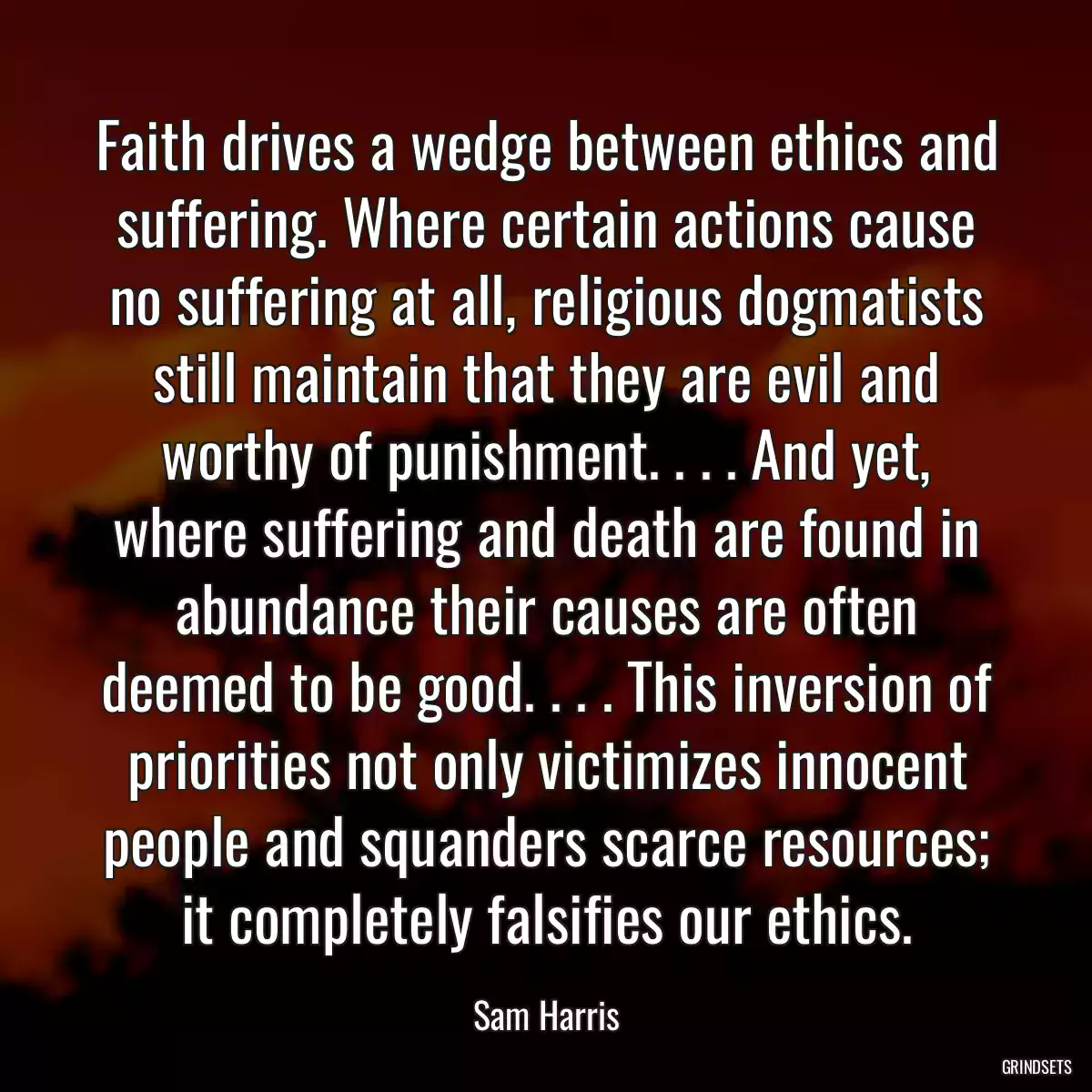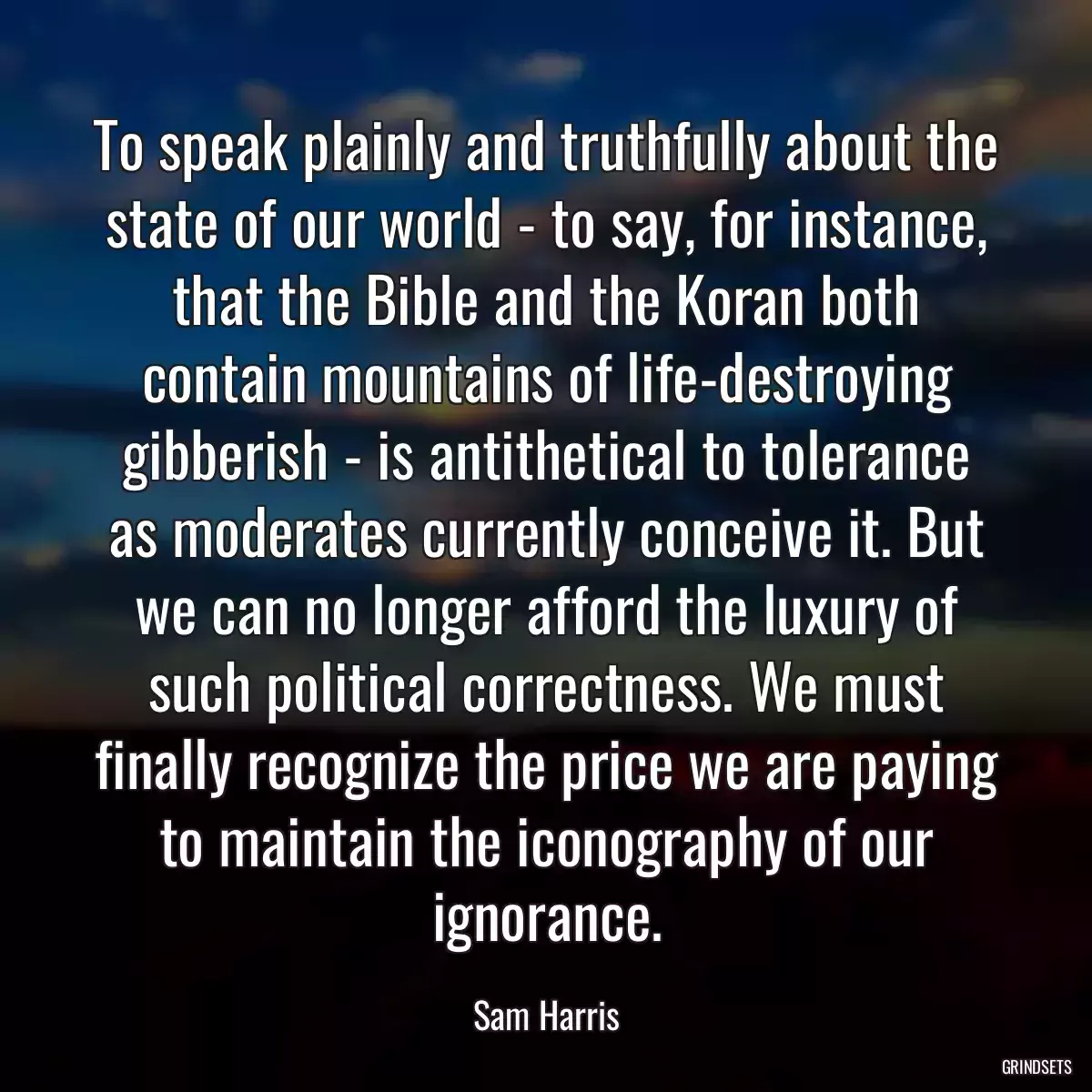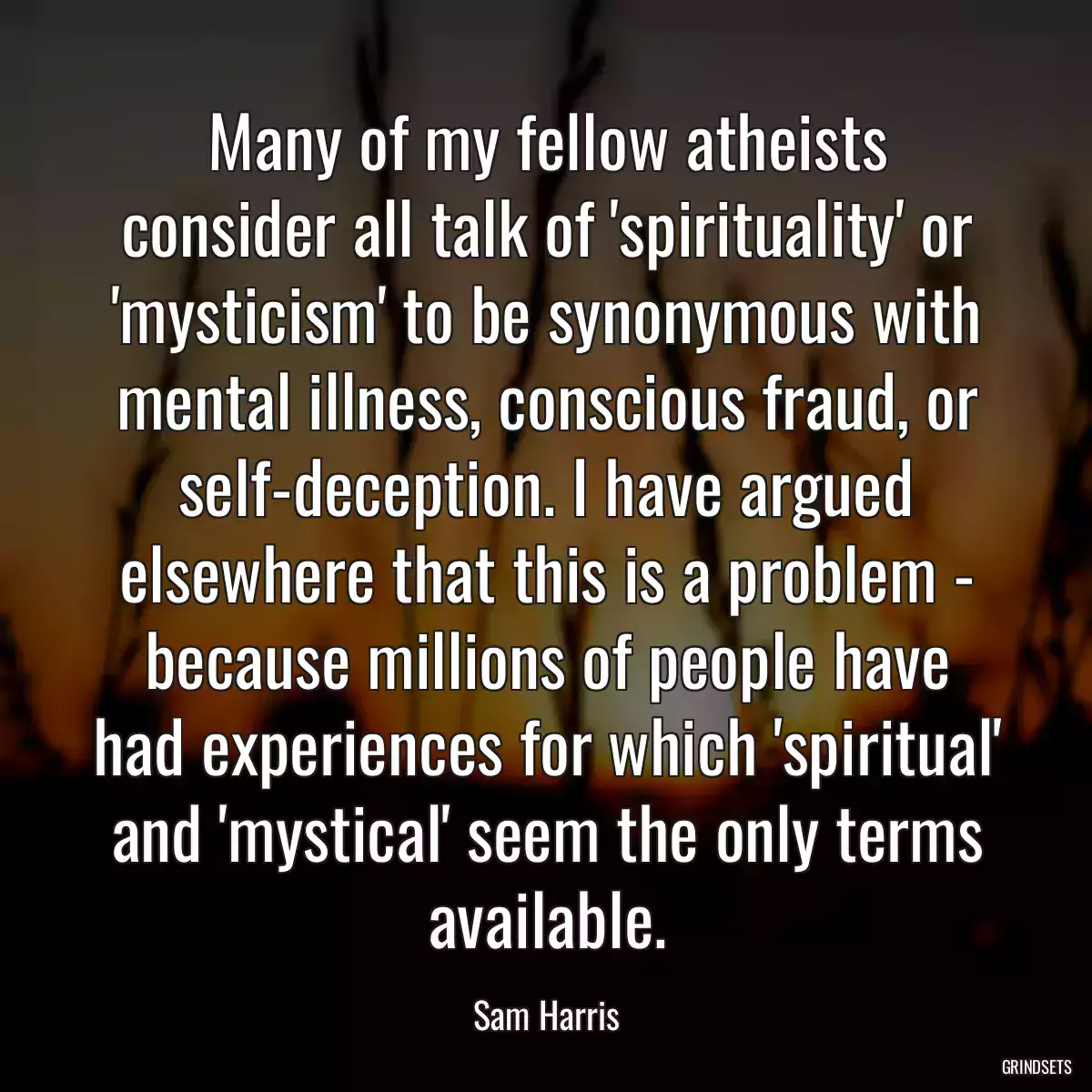
Faith drives a wedge between ethics and suffering. Where certain actions cause no suffering at all, religious dogmatists still maintain that they are evil and worthy of punishment. . . . And yet, where suffering and death are found in abundance their causes are often deemed to be good. . . . This inversion of priorities not only victimizes innocent people and squanders scarce resources; it completely falsifies our ethics.

